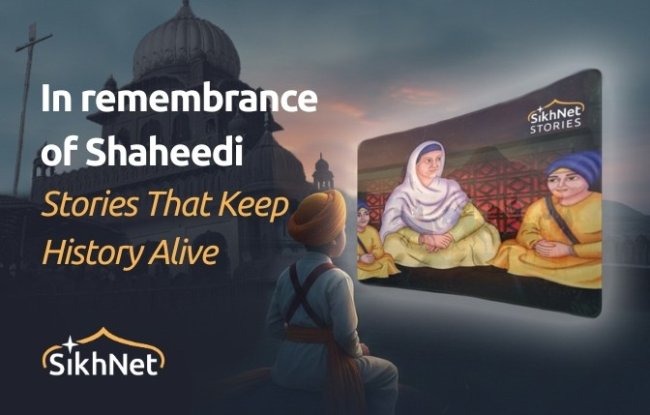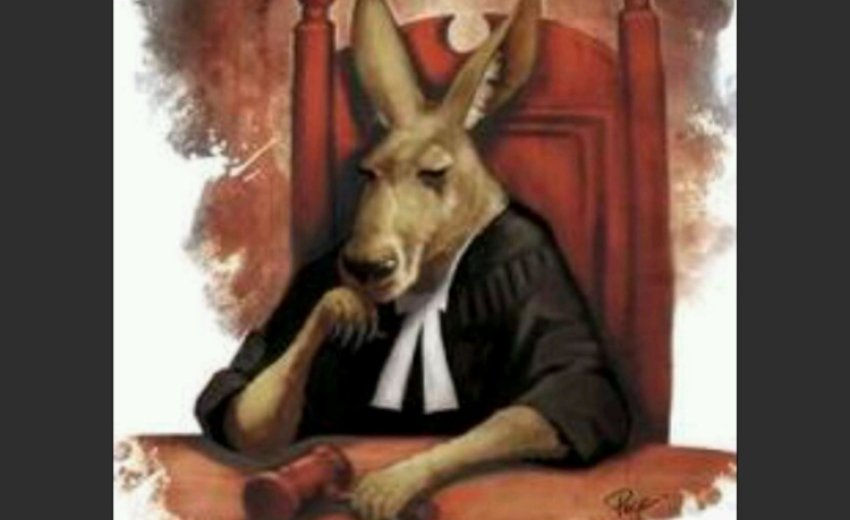 I was thinking of the summary judgment at the Akal Takht that declared its own erstwhile chief guilty and excommunicated him in a proceeding that left little visible trail of an honest trial.
I was thinking of the summary judgment at the Akal Takht that declared its own erstwhile chief guilty and excommunicated him in a proceeding that left little visible trail of an honest trial.
But I spent half that night watching on television the British hearings on how Great Britain got involved in the Iraq War.
The sole witness under the gun for several hours was Tony Blair - the British Prime Minister at the time when Britain got entangled in Iraq. He squirmed, and he hemmed and hawed, and he defended himself vigorously. He sat alone with his files and he periodically consulted them. He may have been the Prime Minister but he responded politely. He may have been the face of Britain for 10 years but here he was the star witness under the gun. He gave little ground but he was grilled incessantly. The questioning was polite but firm and insistent.
I found it instructive and heartening, but not only because I remain opposed to the war and it is satisfying to see the mighty proponents of it humbled and reduced to size. I was most gratified that it was an open hearing; citizens could watch it over the tube. The next morning even the American newspapers carried a detailed report. Why? So that ordinary citizens like you and I could form honest opinions of a critical issue; so that we could judge for ourselves; so that we could become better-informed citizens.
Such proceedings tell me that procedure is all-important - and it is this that was missing in the action against Darshan Singh.
Important as it is to get to the truth, it is equally important, if not more even more vital, to know how we get to the truth. The highest court in a land is that of the people; all power flows upwards from the people, it does not dribble downwards except in despotic systems of governance. So truth must be revealed in a process that remains honest and transparent with clear accountability.
Its called DUE PROCESS. All civilized societies recognize that without it, there is no semblance of fairness, there cannot be any claim to have been just. Period.
There are no 'ifs' and 'buts'.
Judges, no matter how intelligent, educated or dedicated, are human beings and, like us, have their own biases. Absolute objectivity is an ideal, never the reality. We all understand that. Yet, we accept their judgments, even when they appear entirely flawed, largely for two reasons: Because the process appears to be procedurally sound and, if we don't, society might crumble.
As an example, I point to the 2000 Presidential Election in the United States that put George W. Bush in the White House. Even the Supreme Court was divided over the case and half the country still thinks that the judgment was wrong on both the facts and the law. But the fact that the people accepted with good grace what they knew in their bones to be clearly erroneous tells me that we live in a society of laws, in spite of the many times when we feel in despair about it.
This brings me to the January 29 decision of the Akal Takht (with the other Jathedars acting in concert), to ex-communicate Prof. Darshan Singh, a legendary exponent of Gurbani through kirtan and of Sikh teachings.
Is this judgment sound? Was the trial procedurally correct? What does it say about the state of Sikh justice and Sikh people at this time? What are its implications for Sikhs and the image of Sikh the world over?
The fact that all five Jathedars, including that of the Akal Takht, are bureaucrats who remain subservient to the political realities of Punjab and serve at the pleasure of their political bosses makes me cringe at the quality of justice available or possible.
But these are the ground realities in India.
Many of us who remain attached to Sikhi see that our realities in the diaspora are different from those of Sikhs in Punjab and India. There is little, if any, political interference in our lives here. But an equal place at the table in this multifaith society outside India is the priority that drives us.
It seems to us that Sikh institutions in India, including the Akal Takht, have little or no idea of our lives and concerns and little feeling or curiosity for it.
What is the outcome then? Whenever there is an issue with significant ramifications for Sikhs worldwide, they become caught in the maelstrom of emotion and reason. We respect the historical position of the institution of the Akal Takht but despair at its reality. The gulf between our lives and the vision of Indian institutions continue to be almost unbridgeable.
To me, this case is clear evidence of our need to evolve our own institutions to handle our own affairs in the diaspora and not remain tied to the inadequate and frayed apron strings of the Sikh institutions in Punjab. I say this, but I am not advocating that we abandon Punjab and our 500 year old history there. Let's nurture it, encourage and help that land and its people and culture - as equal partners. We just cannot remain subservient to their parochial concerns and often politically driven agenda.
How then is one to respond to the edicts of the Akal Takht, including this one?
I would not obsess too long about it. In the history of mankind, it is not the first nor the last time that governing authorities have acted unwisely or capriciously.
Can one walk away from this edict while holding on for life to the teaching and the ideals of Sikhi? Or should the response be a knee jerk affirmation of obedience to a flawed process.
This is a decision that each of us has to make. And we collectively need to respect the right of every Sikh to his or her own judgment. But let's not remain like an ostrich with its head buried in the sand.
I started with the British hearings on the Iraq War. In religious trials, as in Governmental policy disputes, I would like to see this kind of a model of open hearings instead of closed or secret trials in camera, questionable evidence and insufficient procedural safeguards against capricious judgments. The bias should be less on obedience and more on respect for individual rights. That's the only way religions will rule the hearts and minds of people.
If the trial by the Akal Takht against Darshan Singh appears procedurally flawed rather than one based on sound, honestly handled evidence, how can we assume the judgment to be sound? And what does it say about the state of Sikh justice today?
Trial in a kangaroo court certainly doesn't measure up to the hopes, expectations and the standards of the Gurus. We seem to have missed the fundamentals of Sikhi in our feudal approach to basic human rights and procedures.
No man is perfect and neither may be Darshan Singh. Am I an acolyte of Darshan Singh? Absolutely not. But summary ex-communication, like summary execution, speaks neither of justice nor of wisdom. It seems to have been a hurried, ill-considered step, not a picture of sehaj under pressure.
Sikhism is, when honestly seen, a liberal, forgiving and tolerant doctrine and teaching. Let's not imprison it within the narrow prisms of our own limited vision.
This decision excommunicating Darshan Singh, based more on local politics and narrow-mindedness than fact, reminds me of what the Roman Catholic Church did to Galileo, the finest mind of his day. In the 16th century. He was forced to recant, and under duress he did so.
Slowly but surely common sense ultimately prevailed and ... 500 years later ... the Church forgave him.
Will Sikhs too have to wait 500 years to discover the meaning of justice, accountability and transparency?
In the final analysis, I suspect the Akal Takht will be obeyed and heeded about as much as it is respected and trusted.

